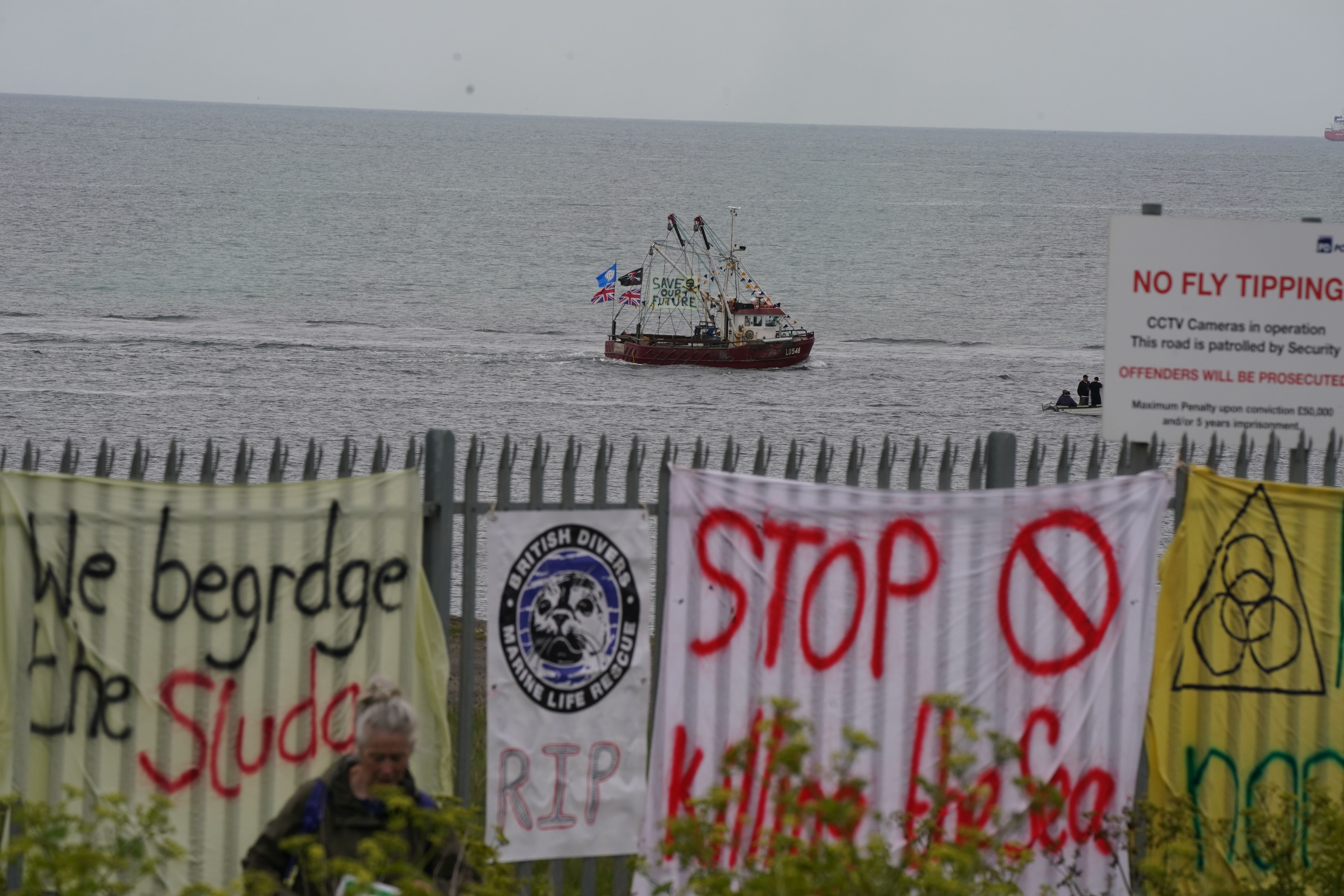Independent panel to be set up to look into mass deaths of crabs and lobsters
Large numbers of dead and dying crustaceans washed up on beaches in the North East last year.

Your support helps us to tell the story
From reproductive rights to climate change to Big Tech, The Independent is on the ground when the story is developing. Whether it's investigating the financials of Elon Musk's pro-Trump PAC or producing our latest documentary, 'The A Word', which shines a light on the American women fighting for reproductive rights, we know how important it is to parse out the facts from the messaging.
At such a critical moment in US history, we need reporters on the ground. Your donation allows us to keep sending journalists to speak to both sides of the story.
The Independent is trusted by Americans across the entire political spectrum. And unlike many other quality news outlets, we choose not to lock Americans out of our reporting and analysis with paywalls. We believe quality journalism should be available to everyone, paid for by those who can afford it.
Your support makes all the difference.An independent panel is being set up to look into the cause of a mass die-off of crabs and lobsters on North Sea beaches last year, the Government has announced.
Thousands of dead and dying crustaceans washed ashore along parts of the north-east coast of England between October and December 2021.
There were distressing scenes of large numbers of dead and dying lobsters and crabs on beaches, while fishing crews warned that sparse catches offshore following the event were “catastrophic” for their livelihoods.
An official investigation into the incident, led by the Environment Department (Defra), pointed the finger at an algal bloom as the likely cause, and concluded it was unlikely that dredging, chemical or sewage pollution or animal disease had been the cause.
But subsequent research by academics, backed by the fishing industry, suggested the incident could have been caused by industrial pollutant pyridine, possibly from dredging in the mouth of the River Tees to maintain channels for port traffic.
There have been calls for a halt to dredging for the new Teesside freeport pending a full analysis of the situation.
In a letter to the parliamentary Environment Food and Rural Affairs Committee – which has been examining the issue – fisheries minister Mark Spencer said an independent group would be established to assess the evidence around the incident and consider all explanations.
This would include the possible roles of algal blooms, dredging and pyridine.
Defra chief scientific adviser, Professor Gideon Henderson, who has not previously been involved in considering this issue, would liaise with the Government chief scientist Sir Patrick Vallance to establish the independent group, Mr Spencer said.
They would consider the findings of the Defra-led investigation published in May 2022 and subsequent analysis from university researchers.
Mr Spencer said: “I recognise fishing communities in the North East want as thorough an assessment as possible into the crab and lobster deaths last year.
The increased sea life mortality has important consequences for local communities and it is important we understand its cause
“Defra’s investigation concluded that the most likely cause was an algal bloom, but we have always recognised this is a complex area of science and have remained open to further research.
“That’s why it is right that all the evidence is now assessed by independent experts and I look forward to receiving their advice.”
Prof Henderson said: “The death of a large number of crustaceans last year in north-east England was unusual.
“The causes have been assessed, informed with a wide range of measurements, by Government agencies and by university researchers, with more than one explanation put forward to explain the deaths.
“The increased sea life mortality has important consequences for local communities and it is important we understand its cause.”